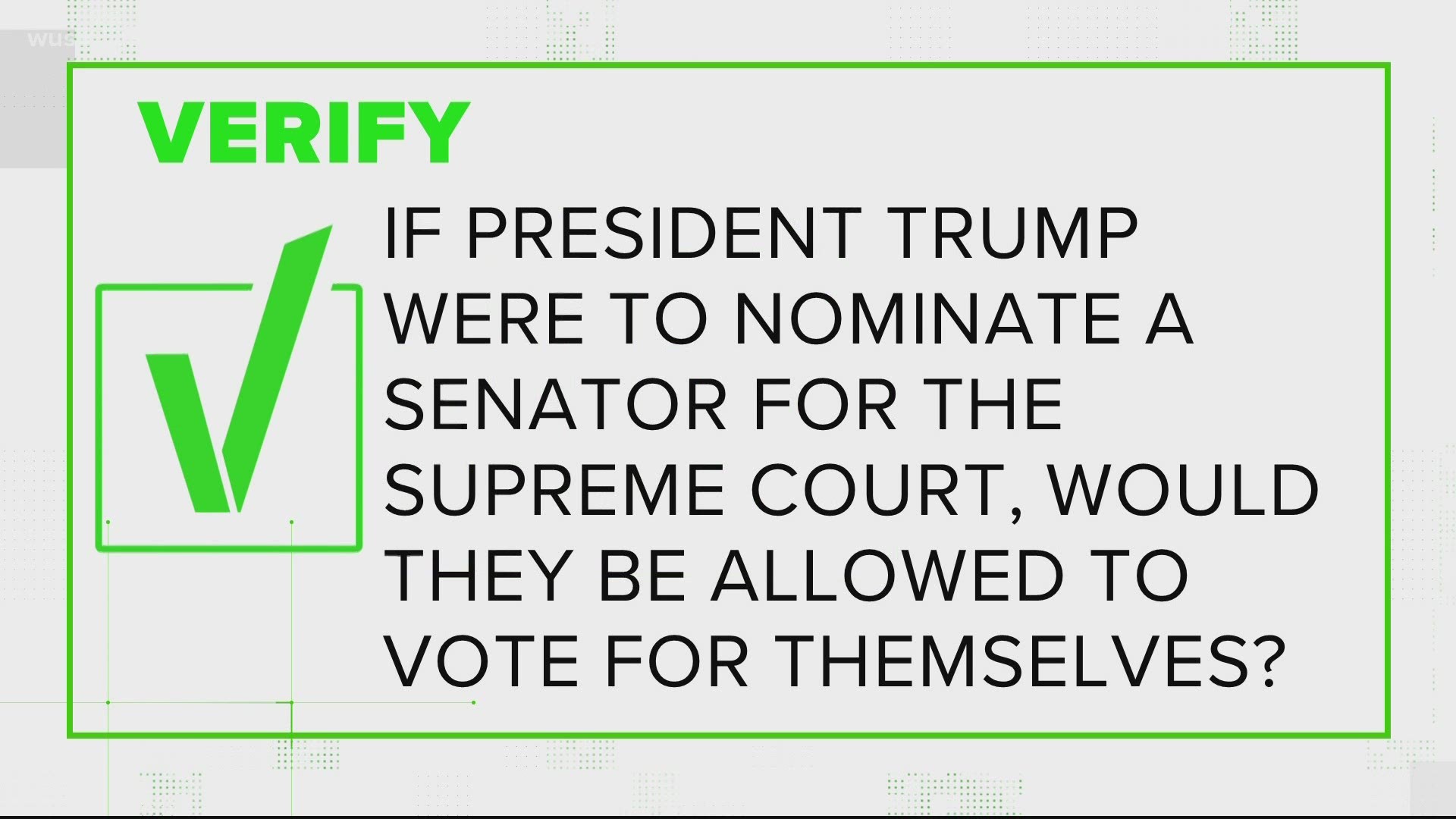WASHINGTON — President Donald Trump announced Monday that he will nominate a judge to fill the vacant seat in the U.S. Supreme Court. Several names have already been floated by the White House as potential replacements. Some are the names of active senators.
Question:
If President Trump were to nominate a senator for the supreme court, would they be allowed to vote for themselves?
Answer:
Yes, if a senator was nominated, they could vote to confirm themselves.
Our Sources:
Laurence Tribe, Constitutional Law Professor at Harvard Law School and Donald Ritchie, a former historian in the Senate Historical Office
Process:
Basically, there is no law or rule against it. However, it might create a bad perception.
Laurence Tribe from Harvard Law School sent our Verify team a statement about the possibility.
“It would violate a centuries-old principle that no-one can be a judge in their own case, but there is no constitutional rule against it,” said Tribe.
Then, we moved on to ask senate historian Donald Ritchie.
“There's no prohibition against voting for oneself in either the Senate rules or the constitution, except for good taste, discretion, and an odor that would inevitably taint the rest of their career,” Ritchie said.
As far as any historical precedent, Ritchie was not sure.
“I don't know of any judicial examples, but during the Andrew Johnson impeachment trial, the Senate's president pro tempore Ben Wade voted to remove Johnson from office, even though that would have made him president,” he said.
All of our experts came to the same conclusion, if a senator is nominated for the Supreme Court vacancy, they can vote for themselves.

